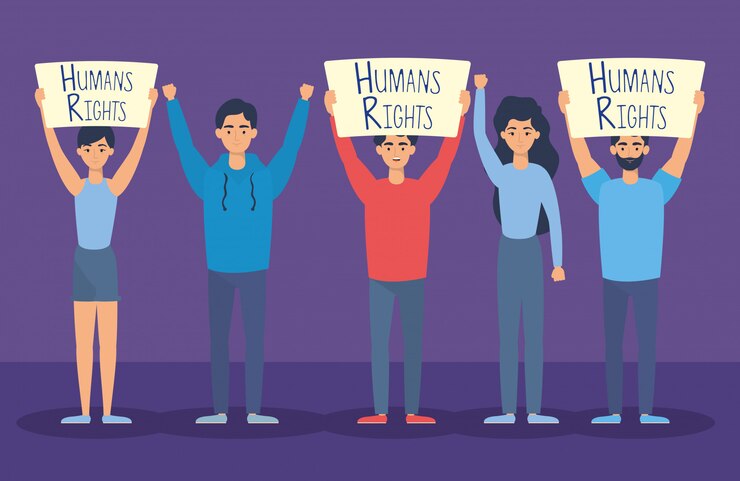China has imposed sanctions on two prominent Canadian human rights groups and 20 individuals linked to them, in a move described as retaliation for Canada’s recent sanctions on Chinese officials accused of human rights abuses. The targeted organizations are the Uyghur Rights Advocacy Project (URAP) and the Canada Tibet Committee, both of which have been vocal in their criticism of China’s human rights practices, particularly regarding the treatment of Uyghurs and Tibetans.
Sanctions Target Key Human Rights Advocates
The new sanctions affect multiple individuals within these organizations, including URAP Executive Director Mehmet Tohti, Policy and Advocacy Director Jasmine Kainth, and legal advisors David Matas and Sarah Teich. These figures are central to the ongoing efforts to raise international awareness about China’s human rights record, particularly its policies in Xinjiang and Tibet.
China’s Ministry of Foreign Affairs issued the sanctions as a response to Canada’s recent actions under its Special Economic Measures Act. On December 9, 2024, Canada imposed sanctions on Chinese officials accused of committing or enabling severe human rights violations, particularly against Uyghur Muslims in Xinjiang. This move by Canada came amid growing international pressure on China over its policies in the region.
China’s Anti-Foreign Sanctions Law
China’s retaliatory sanctions are in line with its Anti-Foreign Sanctions Law, which allows the Chinese government to impose countermeasures against foreign individuals, organizations, or countries that take actions perceived as harmful to China’s interests. This law has been invoked multiple times in the past, including against the United States and other countries, in response to foreign actions perceived as interfering in China’s internal affairs.
The sanctions on the Canadian human rights groups are framed as a defense against what China views as unwarranted foreign interference. The Chinese government has repeatedly criticized foreign human rights advocacy as an infringement on its sovereignty, especially in relation to issues in Xinjiang and Tibet.
Reactions from the Affected Organizations
Despite the imposition of sanctions, the leaders of the targeted organizations have expressed defiance. Mehmet Tohti, Executive Director of URAP, called the sanctions a “badge of honour” and stated that the move would not deter the group’s efforts. “This confirms that we are on the right path,” Tohti said, emphasizing the organization’s commitment to continue highlighting the situation in China.
Similarly, the Canada Tibet Committee described the sanctions as strengthening its resolve to advocate for a peaceful solution to the ongoing human rights issues in Tibet. The group’s statement noted that the sanctions would not divert its efforts in pushing for a more just and equitable resolution to the occupation and repression in the region.
Canadian Legal Experts Weigh In
Sarah Teich, a legal advisor for URAP and president of the Human Rights Action Group, condemned the retaliatory sanctions as part of a broader pattern of authoritarian tactics. She argued that China’s move to target non-governmental organizations is unjustified, calling it a classic response to international criticism. Teich also highlighted the potential consequences for individuals with family members in China, noting that such sanctions could lead to severe repercussions for them.
In an interview with JURIST, Teich emphasized that the sanctions would not deter the groups’ work but rather motivate them further. “These sanctions indicate that our work is having impact,” she said, underscoring the determination of the organizations involved to continue their advocacy.
Broader Context and Implications
The escalating tension between Canada and China over human rights issues has wider implications for international diplomacy. Canada’s stance on human rights, particularly with regard to China’s treatment of its minorities, has led to strained relations between the two nations. China’s retaliatory sanctions are a part of a broader diplomatic strategy aimed at dissuading foreign governments from intervening in what it deems its internal affairs.
The sanctions are also likely to affect international human rights efforts, as both Canada and China continue to confront each other on global platforms. Despite these challenges, organizations like URAP and the Canada Tibet Committee remain resolute in their mission to draw attention to human rights violations in China, signaling that their advocacy will continue undeterred.
Conclusion
China’s imposition of sanctions on Canadian human rights groups marks a significant escalation in the ongoing geopolitical tensions between the two countries. The move underscores the broader conflict over human rights advocacy and foreign intervention in China’s domestic policies. As these sanctions unfold, the international community will closely watch the responses of both Canada and the affected organizations, as well as the broader implications for global human rights advocacy.
References
- JURIST – December 2024
Sarah Teich, co-founder of the Human Rights Action Group, discussed the implications of China’s retaliatory sanctions, asserting that these measures are typical of authoritarian responses to human rights advocacy. The article includes insights into the broader context of China’s Anti-Foreign Sanctions Law and reactions from Canadian organizations like the Uyghur Rights Advocacy Project (URAP).
Source: JURIST | https://www.jurist.org/news/2024/12/china-imposes-retaliation-sanctions-on-canadian-human-rights-groups/ - China’s Foreign Ministry Announcement
On December 2024, China’s Ministry of Foreign Affairs issued a formal statement detailing the new sanctions, highlighting the retaliatory nature of these actions in response to Canada’s own sanctions targeting Chinese officials accused of human rights abuses.
Source: Ministry of Foreign Affairs of the People’s Republic of China - The Canadian Government’s Special Economic Measures Act
The Canadian government’s Special Economic Measures Act, which was used to impose sanctions on Chinese officials, specifically targets individuals involved in gross human rights violations. This is part of Canada’s broader stance on holding nations accountable for human rights abuses.
Source: Government of Canada - The Uyghur Rights Advocacy Project
The Uyghur Rights Advocacy Project (URAP) has been a prominent organization advocating for the rights of Uyghur Muslims in Xinjiang. It has consistently raised awareness of the human rights abuses occurring in the region.
Source: Uyghur Rights Advocacy Project - Canada Tibet Committee
The Canada Tibet Committee is an advocacy group focused on promoting human rights in Tibet and holding China accountable for its policies in the region.
Source: Canada Tibet Committee
These references provide background information on the organizations involved, the legal frameworks surrounding sanctions, and the broader geopolitical context of the issue.
Image by gstudioimagen



